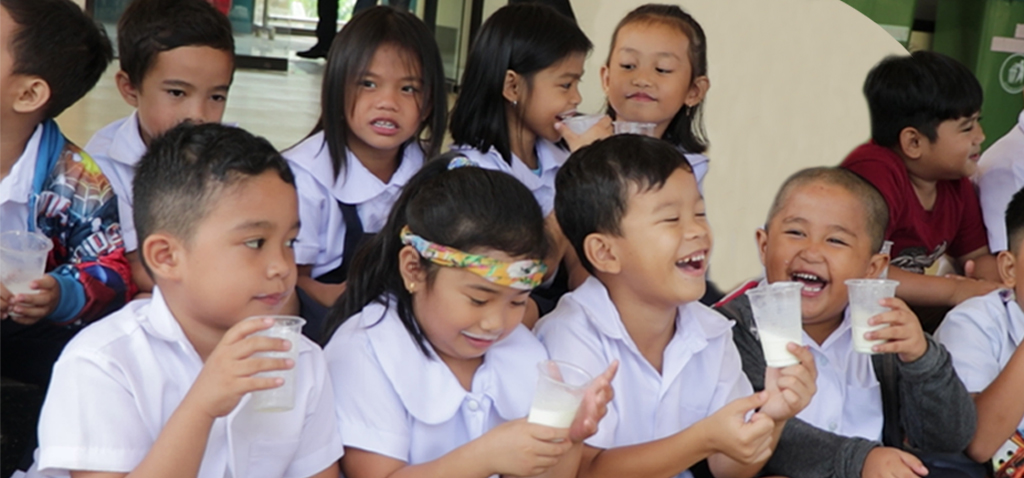The initial implementation of the milk feeding program, led by the Department of Education (DepEd) through the help of 30 assisted cooperatives of DA-Philippine Carabao Center (DA-PCC), had supplied the milk requirements of 503,955 undernourished children in 2019, which is equivalent to 26.12% of the total number of beneficiaries nationwide.
This progressive outcome was the talking point during the visit of the members of DepEd Integrated Monitoring Team from Central Office headed by OIC Director IV of Bureau of Learners and Support Services (BLSS) Lope Santos III, and DepEd Region 3 Education Support Services Division Chief Samuel Sampang to the DA-PCC National Headquarters and Gene Pool in Science City of Muñoz, Nueva Ecija last March 9.
DA-PCC’s top management headed by OIC Executive Director Dr. Ronnie Domingo, Deputy Executive Director for Production and Research Dr. Claro Mingala, Deputy Executive Director for Admin and Finance Dr. Caro Salces, Milk Feeding National Coordinator Mina Abella, and PCC Milk Feeding Team Head Wilma Del Rosario, welcomed the visitors.
Said visit was done to share the strategies behind the success of the initial implementation of Milk Feeding Program in support of RA No. 11037 or the “Masustansyang Pagkain para sa Batang Pilipino Act” and assure its continuous implementation in 2021.
It also served as a venue to talk about the benefits and opportunities brought about by the milk feeding program to dairy value chain players and Filipino children.
Dr. Domingo expressed his gratitude to the DepEd for trusting DA-PCC and its assisted cooperatives to supply the milk requirements needed for the feeding.
In response, BLSS OIC-Dir. Santos III recognized and commended the effort of DA-PCC to ensure the quality and availability of milk supply for the program.
“I would like to thank not just the management but also the milk producers, processors and supplier cooperatives for their unparalleled commitment for the success of the program,” he added.
Dr. Corazon Dumlao, chief of School Health Division, put forward for consideration the inclusion of Milkybun, a nutrient-rich bread, in the School-Based Feeding Program as an alternative food for children, as she tasted and learned that this bread also has carabao’s milk in its formulation.
Dr. Libertado Cruz, Representative of Licaong Agricultural Cooperative (LAC), thanked the DepEd for the implementation of the Milk Feeding program, which gave hope and sustainable livelihood to the farmers. He also shared several key points behind the success of Milk Feeding in Thailand, how it started, and how it grew, which can be emulated by the Philippines.
For the implementation of DepEd 2020 feeding program fund, 32.29% of the total number of beneficiaries, which is equivalent to 1,012,840 individuals will receive milk.
Also present in the activity were representatives from seven dairy cooperatives from Nueva Ecija, which include LAC, Nueva Ecija Federation of Dairy Carabao Cooperatives, Eastern Primary Multi-Purpose Cooperative, Pulong Buli Primary Multi-Purpose Cooperative, Simula ng Panibagong Bukas Multi-Purpose Cooperative, and Brotherskeeper Multi-Purpose Cooperative.












